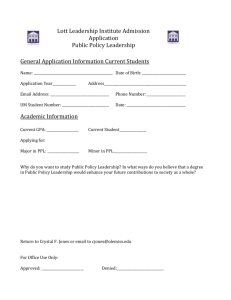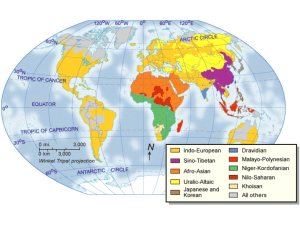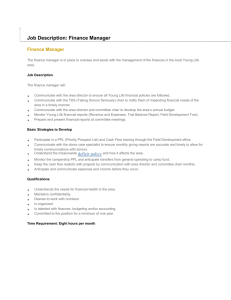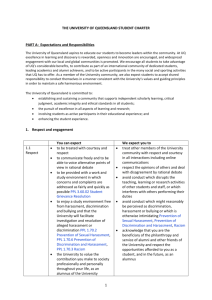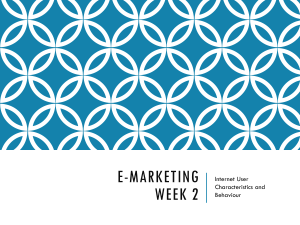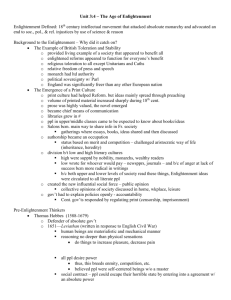notes pages 545-556
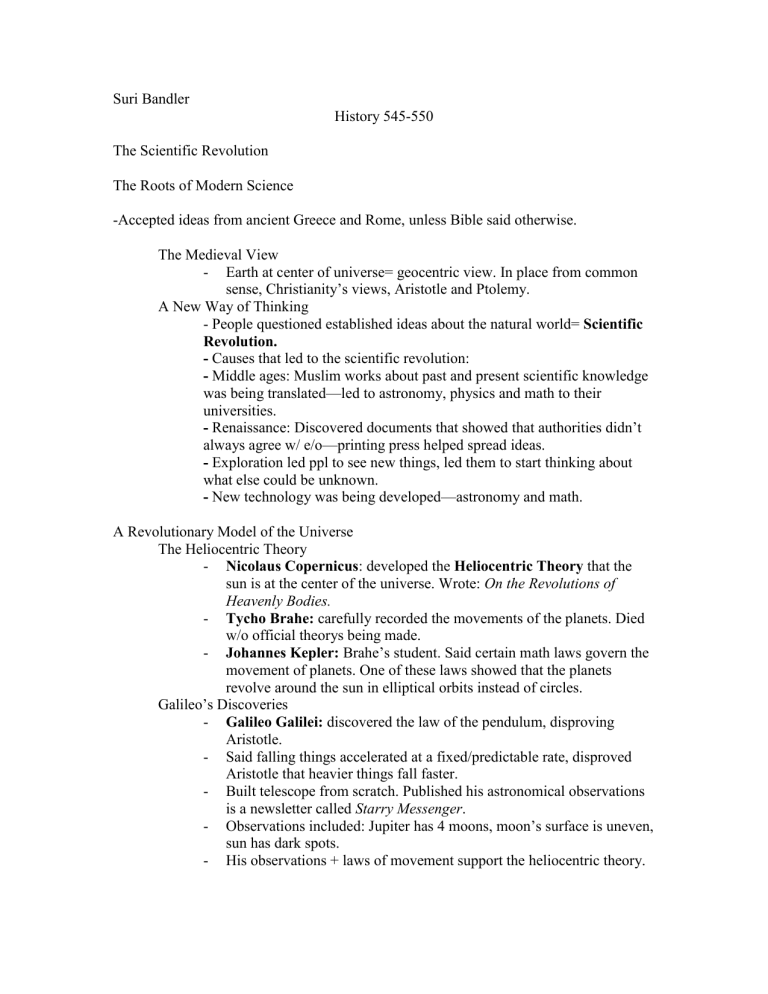
Suri Bandler
History 545-550
The Scientific Revolution
The Roots of Modern Science
-Accepted ideas from ancient Greece and Rome, unless Bible said otherwise.
The Medieval View
Earth at center of universe= geocentric view. In place from common sense, Christianity’s views, Aristotle and Ptolemy.
A New Way of Thinking
- People questioned established ideas about the natural world= Scientific
Revolution.
- Causes that led to the scientific revolution:
Middle ages: Muslim works about past and present scientific knowledge was being translated—led to astronomy, physics and math to their universities.
Renaissance: Discovered documents that showed that authorities didn’t always agree w/ e/o—printing press helped spread ideas.
Exploration led ppl to see new things, led them to start thinking about what else could be unknown.
New technology was being developed—astronomy and math.
A Revolutionary Model of the Universe
The Heliocentric Theory
Nicolaus Copernicus : developed the Heliocentric Theory that the sun is at the center of the universe. Wrote: On the Revolutions of
Heavenly Bodies.
Tycho Brahe: carefully recorded the movements of the planets. Died w/o official theorys being made.
Johannes Kepler: Brahe’s student. Said certain math laws govern the movement of planets. One of these laws showed that the planets revolve around the sun in elliptical orbits instead of circles.
Galileo’s Discoveries
Galileo Galilei: discovered the law of the pendulum, disproving
Aristotle.
Said falling things accelerated at a fixed/predictable rate, disproved
Aristotle that heavier things fall faster.
Built telescope from scratch. Published his astronomical observations is a newsletter called Starry Messenger .
Observations included: Jupiter has 4 moons, moon’s surface is uneven, sun has dark spots.
His observations + laws of movement support the heliocentric theory.
Conflict with the Church
Church upset that his ideas contradicted their teachings. Church was afraid that if ppl saw that they were wrong on this, they would question their other teachings.
Galileo remained publicly silent but continued his work, until in 1632 he published Dialogue Concerning the Two Chief World Systems, in which he clearly favored Copernicus’s ideas over Ptolemy’s.
Galileo brought on trial before the inquisition.
Under threat of torture read aloud a signed confession, agreeing that the ideas of Copernicus were false.
Lived under house arrest until he died.
Book/ideas were still spread around all of Europe.
The Scientific Method
Revolution in scientific ideas that Galileo, Copernicus, and Kepler had started eventually developed into the Scientific Method.
-
Two men’s ideas combined helped advance its development:
Francis Bacon: in his writings criticized scholars for relying too heavily on previous conclusions, and how they formed conclusions from abstract ideas. Said needed to experiment then draw conclusions
(Empiricism= experimental method.)
Rene Descartes: developed analytical geometry, the link between geometry and algebra. Stressed and relied on mathematics and logic.
Newton Explains the Law of Gravity
Said all objects affected by same forces.
-
Disproved Aristotle’s idea that Earth was acted upon by one force, and everything else by another.
Link= Law of universal gravitation. States that all objects are attracted to e/o, and the size of the attraction depends on the mass of the objects and the distance between them.
Mathematical Principles of Natural Philosophy - said that universe like a clock, everything fit together mathematically. G-d=clockmaker.
The Scientific Revolution Spreads
Scientific Instruments
Zacharias Janssen : first microscope
Anton Von Leeuwenhoek: microscope—disproved spontaneous generation, saw microorganism in pond water, saw red blood cells.
Evanfelista Torricelli: mercury barometer (measure atmospheric pressure and predict weather)
Gabriel Fahrenheit: created mercury thermometer—freezin @ 32
Andres Celsius : created mercury thermometer—freezing @ 0
Medicine and the Human Body
Andreas Vesalius: disproved Galen’s theory of human anatomy being like pigs, etc. Did autopsy and published sketched of organs, etc in On the Fabric of the Human Body in 1543.
William Harvey: published On the Motion of the Heart and Blood in
Animals. Proved heart pumped blood, and described the function of blood vessels/
Edward Jenner: First vaccination from small pox.
Discoveries in Chemistry
Robert Boyle: “Founder of Modern Chemistry”. Challenged
Aristotle’s idea that the earth is made of four elements (water, first, air, earth). Said matter was made up of smaller primary particles that joined together in different ways. Most famous contribution to chem. is Boyle’s law. Explains how gas, temp, and pressure interact w/ e/o.
Joseph Priestley : separated o2 from air.
Antoine Lavoisier: preformed similar experiments, named it oxygen.
History 551-556
The Enlightenment in Europe
Mid 1700s: The Enlightenment: The age of reason.
2 Men saw the turmoil in England, had 2 dif conclusions bout gov/human nature:
Thomas Hobbes
Wrote Leviathan
-Since witnessed civil war, said ppl were naturally selfish and wicked.
-Said ppl needed to give up rights to absolute ruler to get law and order
-This agreement (by which ppl created gov)= social contract
-Best gov=absolute monarchy
John Locke
-Thought ppl could better themselves
-Favored self gov
-Ppl born free/equal w/ 3 natural rights: life, liberty, property.
-Purpose of gov= to protect these rights
-Wrote: Two Treatises on Government , justified overthrowing James II
-Statement tht gov’s power comes from the ppl it governs= modern base for democracy. The right to over throw bad rulers, inspire struggles in
Europe/the Americas.
Paris= center where ppl exchanged ideas. Social critics of the time= Philosophes. Said could apple reason to all aspects of life, their 5 concepts (core of their philosophy):
1.
Reason: truth through reason and logic. No bigotry, ignorance, etc.
2.
Nature: what was natural=good/reasonable. Natural laws for economics and politics just as for motion.
3.
Happiness: ppl that accepted nature’s laws-happiness. Rejected motion of misery on hearth to get next world.
4.
Progress: Philosophes were first to believe in progress for society.
Now had scientific method, could perfect society/humankind.
5.
Liberty: through reason, society could be set free from restrictions on speech, etc.
Voltaire ( Francois Marie Arouet): influential philosophes.
Used satire vs. his opponents
Sent to jail twice for challenging higher authorities
When questioned Christianity, fled from Paris.
Fought against intolerance, for freedom of belief/speech
-
Thought England’s government was better
Baron de Montesquieu:
thought fall of Rome was directly related to loss of political liberties
thought England had best gov, admired the separation of powers
oversimplified their gov, wrote about it in his book On the Spirit of Laws
thought Checks and balances was best, his ideas became base for American constitution.
Jean Jacques Rousseau:
valued individual freedom
thought society removed that b/c hierarchy always develops
wrote: The Social Contract in which he said direct democracy was best, ppl need to give up some of their own benefits for the common good
social contract for him was individuals agree to create society, while hobbes was to have agreement between society and gov
agreed with Locke that ppl should consent to gov, but valued much broader democracy.
His ideas used in French revolution
Cesare Conesana Beccaria:
wrote: On Crimes and Punishments
laws for social order, not avenge crimes.
Wrote against abuses of justice
Necessity of speedy trial, no torture
Against capital punishment
Thought gov should seek good from most ppl poss.
Ideas influenced criminal law reformers in Europe and N. America.
Mary Astell:
wrote A Serious Proposal to the Ladies
criticized relationship between men and women in marriage using arguments form the enlightenment
fought for women’s education
Mary Wollstonecraft:
- wrote the essay: A Vindication of the Rights of Women
- disagreed with Rousseau that women’s education should be 2 nd
to men
- argued for women to be doctors as well as nurses, role in politics
- said women needed education to become virtuous and useful, even if just mother, education would make better mothers
Emilie du Chatelet:
translated Newtons work from Latin into French
helped stimulate interest in science in france
aristocrat trained in math and physics
Wealthy women helped spread ideas during the enlightenment during social gatherings called salons.
Ppl in enlightenment challenged old ideas such as social class, etc
Weren’t the active reformers, gave ideas to those that would be.
Enlightenment thinkers produced 3 other long term effects that helped shape W.
Civilization:
1.
Belief in Progress: through reason, better society poss. Galileo and Newton opened doors for science. Revolution encouraged ppl that they could solve social problems. Philosophers urged the end of slavery; social equality.
2.
A more Secular Outlook: Rise of more worldly outlook. Ppl began to openly question their religious ideas. Thought if got rid of superstitions/fear would get religious equality. Newton wanted to use math, etc to explain wonders of
G-d.
3.
Importance of the Individual: ppl looked to themselves for guidance, instead of to authority. Philosophers urged ppl to use their reason to judge right and wrong. Ppl form gov to help themselves.
